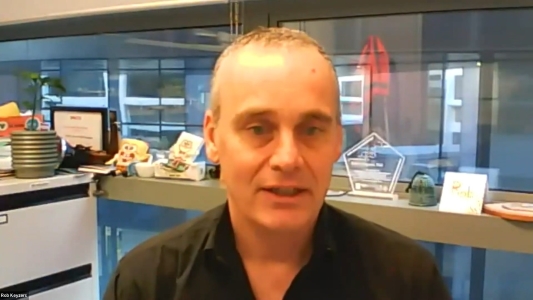Department of Aquatic Products Technology IPB University Presents Experts from Singapore and New Zealand, Discuss Marine Bioprospecting

Department of Aquatic Products Technology (THP), Faculty of Fisheries and Marine Sciences (FPIK) IPB University held an International Webinar on Marine Bioprospecting. This seminar invited two speakers namely Dr Lik Tong Tan from Nanyang Technology University Singapore and Dr Robert Keyzers from Victoria University of Wellington New Zealand.
Dr Eva Anggraeni, Director of Global Connectivity IPB University said, this agenda was IPB University's response to world developments towards a sustainable economy. The topic of bioprospecting in particular, needs to be encouraged for the successful implementation of the blue economy concept.
"This agenda is important for the global economy by accelerating the economy without depending on extraction sectors such as fisheries and mining," she said in her speech.
Dr Eva said, bioprospecting could be an option as a source of sustainable economy to deal with climate change and blue carbon issues.
Dr Roni Nugraha, Head of the THP IPB University Department also stated that bioprospecting can improve people's welfare while responding to climate change and preserving marine life.
“Sea organisms have not been explored much even though they are important for bioprospecting and exploring their potential. With this activity, IPB University wants to explore the superior potential of marine organisms and advance marine biosciences," he explained.
At that moment, Dr Lik Tong Tan discussed the bioprospection of marine cyanobacteria as a superior source of bioactive compounds for the development of the pharmaceutical industry. Marine cyanobacteria are filamentous bacteria capable of producing bioactive compounds such as polyketides, hybrid polyketides and cyanobactins.
"Filamentous strains can be developed for drugs as anticancer agents, antimicrobials, Alzheimer's drugs and anti-malaria," he said.
"Using innovative and bioassay-based approaches such as spectrophotometry, molecular networking can reveal important chemical compounds and chemical molecules," he added.
Meanwhile, Dr Robert discussed a similar topic. According to him, important bioactive compounds from marine organisms can be extracted by molecular networking.
"Global Natural Products Social Molecular Networking (GNPS) can be used as a tool to detect these important compounds. Although the weakness is not being able to detect individual compounds," he said.
One of these technologies, he said, was applied to a lichen collection in New Zealand to look for anti-virus potential. (MW/Rz) (IAAS/YMK)


